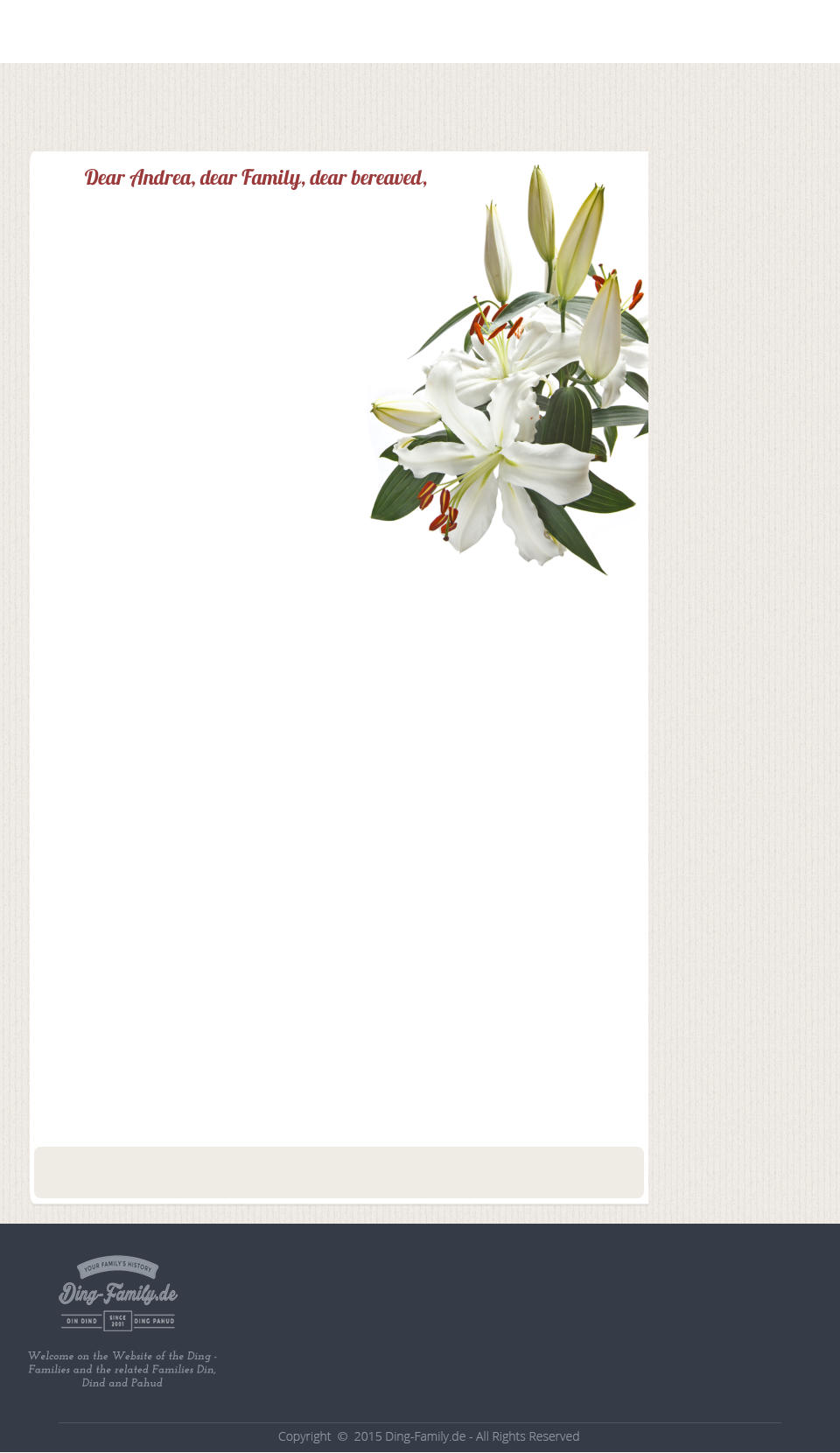
Today, as we bid farewell to Erhard, it is to me a very special
concern to honor his personality especially considering his
deep bond to the Ding – Family, to show my gratitude for his
understanding, his support, his dedication to assume
responsibility according to his capabilities.
After successfully graduating from High School,
Erhard visited us in Feldberg in 1953, precisely at the
same day, at which I had passed the entrance
examination for the Gymnasium Müllheim
[High School]. Both of us were in high spirits.
On our excursions (for example to
Schloss Bürgeln [castle] he would rave about
how nice schooldays had been,
which inspired me and later I always would
want to follow in his footsteps.
In those days began a lifelong friendship,
which lasted notwithstanding those many
stumbling blocks, we encountered during our lifetime.
His youth was affected by the horrors of war and postwar period. Even shortly
before his death he would remember how he carried his sister Gisela as a Baby
out of the air-raid shelter of a burning house. After the war was over, he had to
take part in providing for the family, as his father, as soldier, was a prisoner of war
and later as teacher he was absent for months due to the denazification
procedure. He told me how as a 13 year old boy he had to obtain staple foods
like milk, potatoes etc. from related farmers of Leimen, Gaiberg and the nearby
Odenwald. From them he learned how to care for a beehive and soon he was
successfully trading in honey. Not without pride he stood devoted to this passion
even into old age and on Swiss mountains.
In nearby Edingen he got to know his grandparents and experienced the
willingness to help of the related Ding, Koch and Wacker families - farming
families and families of craftspeople – who helped each other especially in the
midst of adversity.
He had more than 30 cousins and to him it went without saying that he joined
the trombone choir his father had founded together with his five brothers. I
remember that on the morning of New Year's Day in 1955, at the last minute he
drove to the church service and the car – his father’s brand new VW - skidded on
the icy Hauptstraße (main road) of Edingen and wrapped around a telephone
pole, coming to a halt next to the church and the former mortuary house. His
relatives got him out of the wrecked car almost uninjured. It’s not surprising that
he felt close and committed to the family, wanted to participate at the big family
reunions, contributing the whole expenses for the rent of the hall, financed the
documentation of the family tree, even accompanied us to St. Cierge, the village
our family originates from, making a dazzling offer to the local museum for the
first motorized aircraft which took off in the canton of Watt.





























